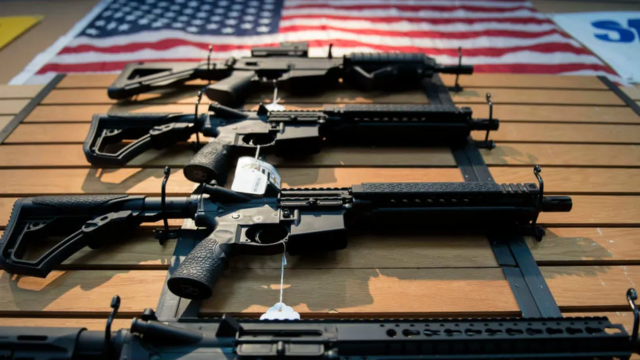The National Rifle Association asked the U.S. Supreme Court on Friday to hear a case against a Florida law that raised the age to 21 from 18 for buying firearms and other long guns. The NRA said that the split decisions of lower courts were “intolerable.”
The latest move on Friday was the latest in seven years of court battles over the law that was passed after the February 2018 shooting at Marjory Stoneman Douglas High School in Parkland that killed 17 students and teachers.
Nikolas Cruz, who was 19 years old at the time, killed the people at his old school with a semiautomatic firearm. The NRA sued to challenge the legality of the law that limited the age of ownership of guns soon after it was passed.
The law was upheld by the 11th U.S. Circuit Court of Appeals in March. The court, which takes cases from Florida, Alabama, and Georgia, said in an 8–4 vote that the age limit is “consistent with our historical tradition of firearm regulation.” In a case from Colorado last year, the 10th U.S. Circuit Court of Appeals made a similar decision.
But the NRA’s lawyers used a January decision from the 5th U.S. Circuit Court of Appeals that said a federal rule that said guns couldn’t be sold to people 18 to 20 years old was unconstitutional in what is called a “petition for writ of certiorari” filed Friday in the Florida case. Texas, Mississippi, and Louisiana are all in the 5th circuit.
The petition said that the Florida rule should be looked at by the Supreme Court because of the different decisions made by appellate courts.
“This split between the circuits over so fundamental a question is intolerable, and it urgently calls for this (Supreme) Court’s resolution,” the file said.
The NRA questions whether Florida’s rule on age limits is based on facts from the past.
The March decision by the full 11th U.S. Circuit Court of Appeals upheld the choice of a group of three judges. The ruling talked about the past of the country’s gun laws, from when the country was first created to recent Supreme Court decisions that set rules for how to apply the Second Amendment. Even though the law says that people under 21 can’t buy weapons and long guns, they can still get them as gifts, like from family.
“From this history emerges a straightforward conclusion: the Florida law is consistent with our regulatory tradition in why and how it burdens the right of minors to keep and bear arms,” Chief Judge Pryor said. “Because minors have yet to reach the age of reason, the Florida law prohibits them from purchasing firearms, yet it allows them to receive firearms from their parents or another responsible adult.”
But on Friday, the NRA said that the court in Atlanta made mistakes in its historical analysis because 18–20-year-olds in Florida are adults, not children.
“The rule from the founding era, even by the standards of the en banc (full court) majority, only limited the right to keep and bear arms of legal minors. These were people who were not treated as adults for most other purposes and who stayed with their parents for care, custody, and protection.” But Florida’s law takes away the right to buy guns from legal adults, which are 18–20-year-olds who have all the legal and real rights of adults, are not under the care or supervision of their parents, and often have their own families, the lawyers for the gun rights group wrote.
The petition partly quoted a Supreme Court decision and said, “One of the most important parts of being an adult in the United States is exercising your constitutional rights, which includes the right to protect yourself, your family, and your home with common firearms.” So, taking away an adult’s Second Amendment rights at the age of 18 is fundamentally at odds “with the principles that underpin the nation’s regulatory tradition.” The court should grant the writ and reverse.
There was also a mistake in the Florida case because “strong historical evidence that law-abiding 18-to-20-year-old citizens were understood at the founding to enjoy the Second Amendment’s protections,” the NRA’s petition said.
Florida and its people “have not identified, and we are not aware of, any evidence whatsoever of colonial or founding-era laws restricting the keeping, carrying, or acquisition of firearms by individuals aged 18 or over because of their age,” lawyers for the NRA said.
For a long time, federal law has said that people younger than 21 can’t buy firearms. The 2018 Florida law that says people under 21 can’t buy long guns says it was made to “address the crisis of violence, including but not limited to gun violence on school campuses.”
The NRA’s petition said that the “weak evidence” that the 11th Circuit used to support the law “falls far short of establishing” that gun laws in the past “restricted 18–to–20-year-olds’ access to firearms at all.”
“In states across the country, 18-to-20-year-olds are considered legal adults for virtually all purposes: they may make contracts, vote, serve on juries, petition the government, freely express their views, and serve in (or be conscripted into) the armed services,” it said.





More Stories
NRA Challenges Florida Gun Law at U.S. Supreme Court
NRA Challenges Florida Gun Law at U.S. Supreme Court
NRA Challenges Florida Gun Law at U.S. Supreme Court